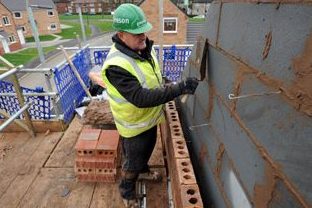Profits drop at housebuilder as buyer confidence falters

Housebuilder MJ Gleeson says it contended with economic volatility, a deterioration in buyer confidence, planning delays and uncertainties around Government policy as it issues audited results for the year ended 30 June 2023.
Despite these problems, the Sheffield-headquartered business says it still managed a resilient set of results, with revenues up 12.1% to £328.3m (20222: £373.4m) and pre-tax profits down 43.2% to £31.5m (2022: £55.5m).
Graham Prothero, CEO, commented: “I am pleased to report a robust performance despite the impact on buyer confidence as a result of current economic volatility.
“We maintained an acceptable sales rate, supported by our first multi-unit and investor sales. We were pleased to see growing levels of interest from purchasers who might previously have considered more expensive homes from other developers.
“We are excited about the longer-term growth opportunities for the business and look forward, as economic conditions stabilise, to achieving our ambition for the business and realise its medium-term potential of delivering 3,000 homes a year.
“I believe we have a resilient business operating in an undersupplied market segment, a robust balance sheet, great prospects and an excellent team to ensure we continue to successfully navigate the current environment and take full advantage of the significant opportunities ahead.”
MJ Gleeson operates across two divisions – Gleeson Homes and Gleeson Land.
Gleeson Homes sold 1,723 homes during the year (2022: 2,000) with average selling price up by 11.3% at £186,200 (2022: £167,300), and underlying prices up 7.6%.
The division’s land was pipeline up by 561 plots to 17,375 plots (2022: 16,814).
In Gleeson Land, three land sales were completed during the year (2022: six) and the division also reported six sites with planning or resolution to grant (2022: three).
A total of 18 sites were awaiting a planning decision (2022: 16 sites).
MJ Gleeson adds it took advantage of the quieter market to implement a reorganisation of the business, reducing regional overheads and standardising the structure to facilitate efficient and controlled future growth.
The company cut its number of divisions from three to two and regional management teams from nine to six, securing £3.2m of annualised administrative cost savings.
It says this restructuring has put the business in a stronger position to grow as the market recovers.








